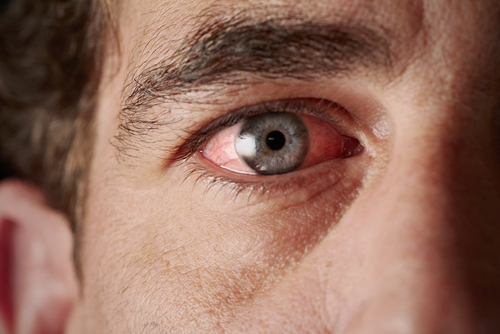Who Can Get Pink Eye?
Pink Eye, also known as conjunctivitis, is a very common eye condition. This eye condition often requires treatment to improve your symptoms and to prevent it from spreading to others.
If you think you have pink eye, it’s best to be diagnosed and treated by your eye doctor right away. Keep reading to learn more about who can get pink eye!
What Is Pink Eye?
Pink eye is an eye condition caused by an allergy, bacteria, or a virus. Your eye appears pink or red because the conjunctiva, the thin clear tissue that lies over the white part of your eye, is inflamed.
Pink eye is highly contagious and a nuisance to have. Although it comes with annoying symptoms, it’s not likely to damage your vision.
Pink eye spreads quickly and easily from person to person and even from objects that the infected person touched.
What Are the Symptoms of Pink Eye?
In addition to having watery eyes, you’ll also notice that your eyes are much redder in the part of your eye that is usually white. You also might notice a sudden sensitivity to bright light.
Some people experience discharge, crusting, or wake up with their eyelids stuck together. In some cases, people with pink eye may also experience itching.
What Are the Different Types of Pink Eye?
There are three specific types of pink eye:
Viral Pink Eye
Viral pink eye is the most common type and also the most contagious. You can catch it and spread it before you even develop symptoms.
Bacterial Pink Eye
If you have bacterial pink eye, you will likely experience a lot of mucus discharge and crusting around your eyes. Bacterial pink eye usually starts in one eye and doesn’t always spread to the other eye.
Allergic Pink Eye
If you have pink eye caused by allergies, it is similar to symptoms you would experience with seasonal allergies. Both of your eyes may become itchy and red, and you’ll also have a runny nose as your body is trying to fight the foreign allergen.
If you have pink eye because of an allergy, you are often not contagious to others.
How to Prevent the Spread of Pink Eye
To help prevent spreading viral or bacterial pink eye, stay home until your symptoms are gone. It is also essential to wash your hands frequently and avoid touching your eyes and face as much as possible.
Don’t wear eye makeup until the infection is gone. You may also need to throw away any contaminated eye products, like makeup or contact lenses.
Wash your pillowcase daily in hot water until the infection has cleared up, and keep your bed linens and towels separate from other household members. This will help prevent them from getting it and also from you reinfecting yourself.
When Should You See An Eye Doctor?
Visiting your eye doctor and getting a diagnosis can help ensure a speedy recovery. Be sure to schedule an appointment with your eye doctor right away if you notice any vision changes, if your eye has a lot of yellow or green discharge, or if you have a fever, chills, or face pain.
During your eye exam, your eye doctor will ask you about your symptoms and examine your eyes. This process will help them determine if you have pink eye or not, and if so, which type you have.
Once your eye doctor determines which type of pink eye you have, they will prescribe a treatment regiment. Treatment may include eye drops, ointments, pills, water flushes, and comfort care like cold compress and artificial tears.
Are you experiencing pink eye symptoms? Schedule an appointment at Mid Ohio Eye in Columbus, OH, today!










